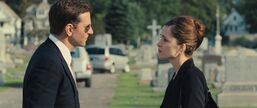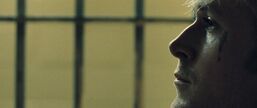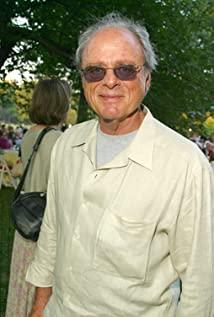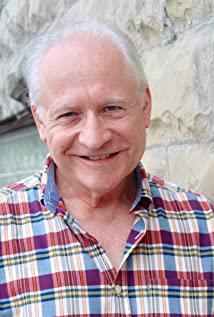(Spoiler) It is better to turn off the lights when people die, or they may go with them. Wandering may not be lost, but a journey to find hope. The screenwriter of " The Place Beyond the Pines " is very bold. The male protagonist Luke (also known as the "Car God" in the translation) died before half the movie's broadcast time and never appeared again, but the other main characters The characters—including another hero, Avery—have always lived in the shadow of the former. Luke is an outstanding stunt motorcyclist and a criminal. Avery is a policeman. The only time the two protagonists are on the same scene is when the soldiers catch a thief. Luke died under Avery's gun. Later, Avery became a prosecutor and rose to prominence, but he couldn't teach his son AJ well. AJ met Jason in middle school, Luke's child. The prosecutor's son grabbed the criminal's son and fell together. In the end, Jason left everything behind and rode his motorcycle through the pine forest.
The movie looks depressing. It seems that nothing can stop people and things from going in a worse direction. The corruption of the human heart is internal; there are also so-called "structural sins", which seem to be forced/induced by external environmental factors, but it is ultimately determined by the human heart. A generation is not as good as a generation, because people are taught badly by others. They all thought about being a good person, but they got worse and worse. Luke is a homeless prodigal son with a rude style and nostalgia for his fatherless and rootless background. When he finds out that he is romantic one night, the woman gives birth to a son for him, and the shock of becoming a father makes Luke decide to give up his wandering life as a stuntman and find a job in the garage to settle down. He wanted to be a good person, but the garage owner took him to the bank to rob him, coaxing him to find money to support the child and fulfill his father's responsibilities. In fact, the child's mother has formed a new family, he is not without a father. It's just that Luke, who has long since lost his father, needs the existence of a father too much - himself - he can't miss the opportunity again, and hopes to make up for the regret of not having a father by being a father. More than ten years later, his son Jason clearly loved his parents, and even if he made mistakes, he was treated very tolerantly, but he continued to derail and went further and further. Why is this happening? What does he lack? What else does he desire? What AJ, who dragged him into his fall, lacked was obviously fatherly love. Avery inherited his father's business, turned from a policeman to a prosecutor, and never disciplined AJ for the sake of his career - he just didn't want his son to cause him trouble. In a society ruled by law, Luke and Avery seem to stand on opposite ends of good and evil, but neither of them are good people, and Avery is not better than Luke.
Luke is a thorn in Avery's heart, because Luke was shot and fell to his death without resisting. Avery became a hero by lying to protect himself to get a verdict of "legal homicide". That was just the beginning of the fall. His colleagues figured that Luke would give the money to Jason's mother after the robbery, so the burglar embezzled the money and gave Avery the biggest share. Avery is not without a conscience. He asks himself that he owes Luke, but he also wants to thrive, just like his official father. His colleagues, superiors, and even the entire police department are corrupt, and his father taught him to use political means to exchange the scandal of the police department for the cost of transferring to prosecutors. Wearing the mask of justice, but wielding deceit, is a lesson taught by the law enforcement and judicial system that surrounds Avery. Avery and Luke are the same whether they have a father or not. They both learn badly, but they have to be willing to learn. Every time Avery struggled, he finally relied on self-preservation and development. His apology to Luke, which had followed him over the years, was just a shadow. His wife saw it, couldn't take it anymore and left. But his son AJ followed him. The so-called young man who knows his mistakes and can be corrected is actually just learning more hypocrisy and treacherousness. It is a sinful inheritance of his ancestors.
Neither AJ nor Jason are "good boys" and both take drugs. But when Jason wanted to turn his back, AJ forced him to commit more sins. Later, Jason found out that his biological father had been shot by AJ's father, and he had the idea of revenge. After several twists and turns, Avery and his son continued to move in the direction of successful people, and Jason became a criminal like Luke, wandering the world.
"Beyond the Pine Forest" cuts and reverses the theme of "Fatherless—Looking for Father". Jason's adoptive father is kind, Avery and AJ's father is successful, Luke has no father, and the results all seem to be the same. Luke's absence is an irreparable wound for Jason. Behind the desire to find roots is the fear of abandonment? Perhaps the root of sin is not wanting to be abandoned; on the other hand, it is the approval of others. Therefore, what others ask them to do, whether good or bad, end up being willing to do it. They think it's "good", they think it's "success" -- just cover up what others don't agree with, and deceive themselves. Therefore, when social values have fallen, leaving seems to be the only hope for opening an exit. There are no lies on the road, only the wind.
(Originally published in Times Forum 1351 Issue 21-7-2013)
View more about The Place Beyond the Pines reviews











